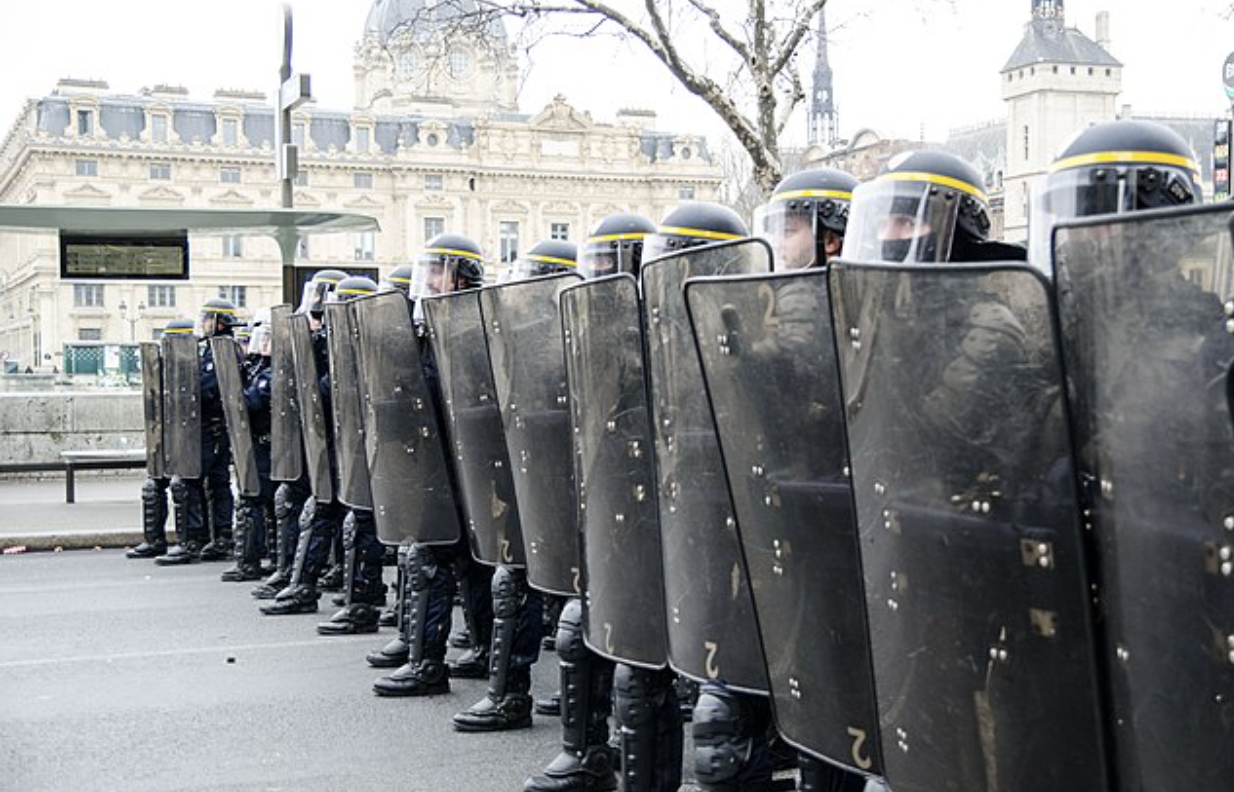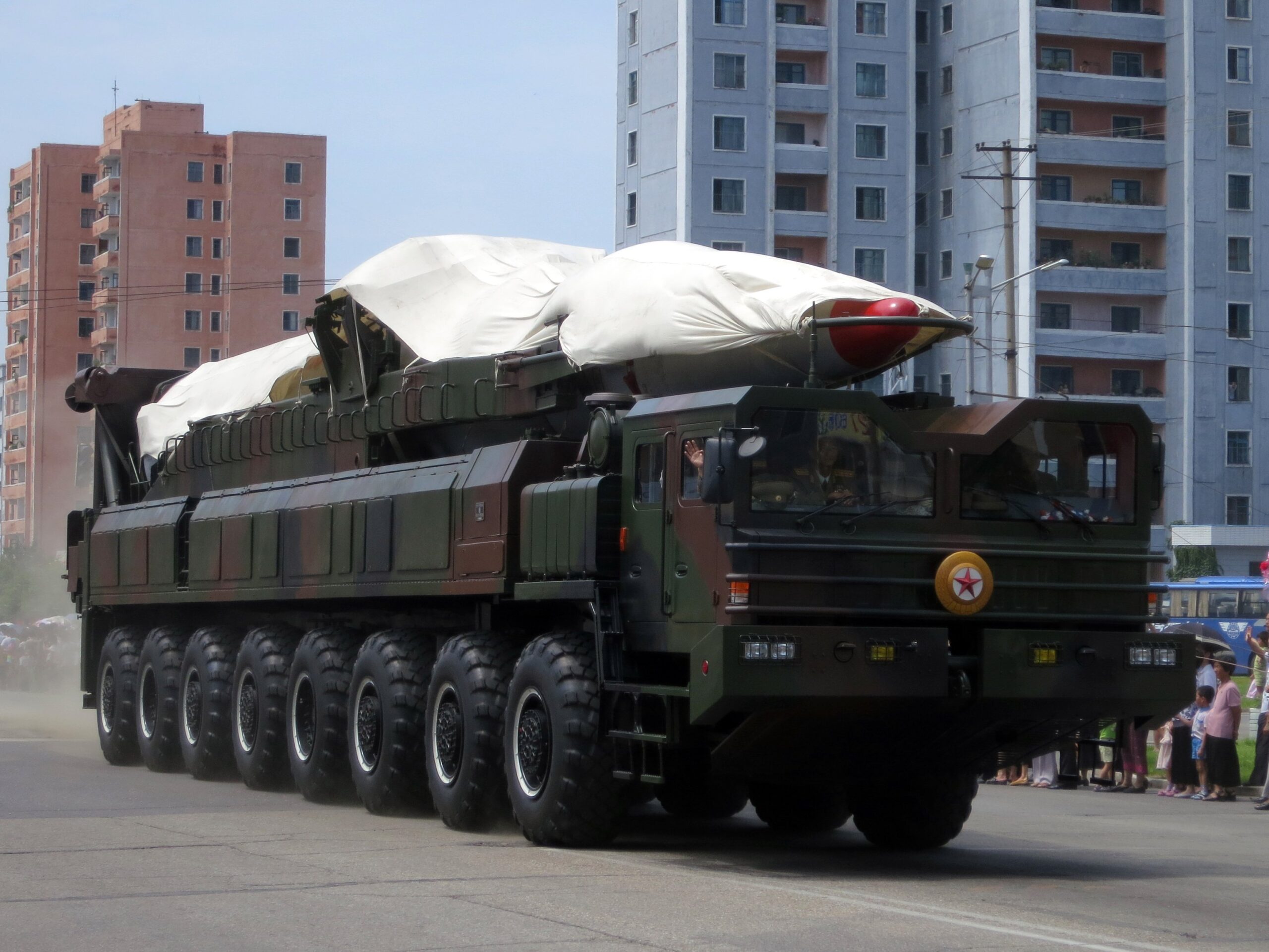![]()
While for many people civil unrest is just as French as baguettes and the Eiffel Tower are, the riots currently plaguing most French cities have a violent nature that has not been seen in decades, worrying both the French people and international observers. More importantly, it is possible that these riots are a symptom of deeper issues in French society, specifically the tense relationship between the native French population that feels newer immigrants are not assimilating correctly and the large immigrant population that does not feel welcomed by the French.
There is also concern about the impact these events will have on the 2024 European elections and the 2027 French elections, both of which may result in major victories for the far-right parties if current trends continue. France, much like the United States, is witnessing worsening political polarization, making it crucial that President Emmanuel Macron and his government’s response to these riots deters any future attempts at political violence.
The killing of 17-year-old Nahel Merzouk by a French police officer on June 27, 2023 sparked the current set of violence. The circumstances of the shooting are still under investigation and no ruling has been pronounced on the guilt of the officer, however, he is currently being held in custody facing charges of voluntary homicide. Police unions are standing with the officer, mostly due to the complicated context surrounding the shooting.
Prior to his death, Merzouk led two police officers on a high-speed pursuit through a densely populated Parisian banlieue (outskirts of cities, usually associated with public housing projects). Merzouk was forced to stop his Mercedes AMG due to traffic, at which time the two police officers approached the car with their guns drawn.
In a 10-second video that spread around social media, the two officers can be seen next to the car shouting at Merzouk when his car suddenly begins advancing and one of the officers fires. The car then accelerates and crashes a few meters down the road.
A considerable portion of the French population considers the shooting to be unjustified despite the crimes committed by Merzouk, which include driving without a license, endangering pedestrians and refusal to comply with police. Support for the police officer has intensified due to the destructiveness of the riots, evidenced by a GoFundMe opened for the officer and his family that has raised 1,635,000 € ($1,800,000) from 85,000 contributors.
While officials will continue to investigate the shooting, the ongoing riots are captivating the world’s attention. Riots are not a new concept to the French; the French government frequently employs the Compagnies Républicaines de Sécurité (CRS), police units specially trained to control civil unrest and maintain order.
However, during times of widespread chaos, such as the Yellow Vest movement from 2018 to 2020, and now the Nahel Merzouk riots, these riot police forces are overwhelmed, and disorder is allowed to run free. Many of the scenes being captured in Paris are reminiscent of what many Americans witnessed on their television screens during the violent aftermath of George Floyd’s death. Since the start of the riots, 577 vehicles and 74 buildings have been burnt, and over a hundred police officers have suffered injuries caused by projectiles such as glass bottles and fireworks.
The rioters have targeted more than just police forces, including Mayor Vincent Jeanbrun of L’Hay-les-Roses whose private residence was rammed by a burning vehicle. While violence against police is almost commonplace in periods of French civil strife, attacks against elected officials are considered threats to the republic and democracy.
A major reason why this shooting has caused so much unrest is because the shooter was a white police officer, and the victim was a French citizen of Algerian and Moroccan descent from the banlieues of Paris. Immigration has ranked among the most important issues for France since the Syrian Refugee Crisis, with most political parties on the center and right advocating for stricter immigration policies.
There has also been extensive debate on what to do with the millions of immigrants or first-generation French citizens that seem to not fit in with the traditional French population. The most radical voices on the far-right, such as former presidential candidate Eric Zemmour, proposed mass deportation, while more sensible voices have called for better integration measures and restrictions on future immigration. The riots will only add fuel to this fire since hundreds of those that have been arrested for violent acts and looting are teenagers of African or Arab descent.
These tensions may prove to be crucial in the 2024 European Parliament and 2027 French Presidential elections. Polls for the European elections already predict seat wins for the far-right coalition and in an April 5, 2023 poll, the far-right Rassemblement National (RN) slotted itself in second place for parliamentary representation, a mere percentage point behind the left-wing NUPES coalition. It is not a far stretch of the imagination to envision an RN sweep of the 2024 and 2027 elections, with probable RN presidential candidate Marine Le Pen being elected president as the crowning achievement.
As with all other moments of civil unrest in recent French history, these riots will pass soon enough. However, each of these events over the past few years, be they pension reform strikes or looting in the streets, leave a trace in the French political psyche. France is moving more towards the political extremes; eventually the traditional left and right-wing parties will no longer be able to withstand the vote share of the radical parties.
The United States must prepare itself for a France led by a far-left Jean-Luc Mélenchon or Le Pen that does not view the U.S. favorably. France may choose to leave NATO as it did in the 1960s, if only to escape from so-called Anglo-Saxon domination. The past decade of French unrest points to the fact that France is undergoing a momentous period of change, the result of which remains to be seen but we must nonetheless anticipate. France is trying to find a new place in the world and the primary responsibility of American statesmen is to ensure that new place is not against Washington.












